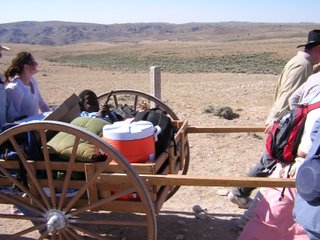
This past weekend I visited the sage-brushy landscape of south-central
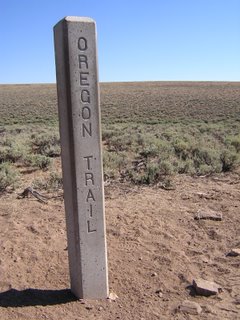
(named because it is one of the first cities on the Atlantic side of the Continental Divide) an abandoned ghost town in which, somehow, people still live. There, we met Bishop and some others, then were driven down several unmarked, dirt roads at high speeds until we reached our camp site. We were to then sleep, then hike, then sleep, then hike again.
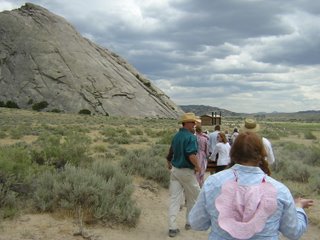 Our first hike was to Martin’s Cove, where the starving, fatigued pioneers sought shelter from the wind and cold. It’s about a two mile walk into the cove, but with all the little children in our group, and the frequent water breaks, it took nearly half the day for us to make it. It’s very reverent there and a good place for reflection on what our lives are like compared to the way the pioneers’ lives were.
Our first hike was to Martin’s Cove, where the starving, fatigued pioneers sought shelter from the wind and cold. It’s about a two mile walk into the cove, but with all the little children in our group, and the frequent water breaks, it took nearly half the day for us to make it. It’s very reverent there and a good place for reflection on what our lives are like compared to the way the pioneers’ lives were.
The next day took us on a fifteen mile walk over the rocky ridge the pioneers crossed before camping for the night at Rock Creek Hollow. This, I soon found out, was also part of the 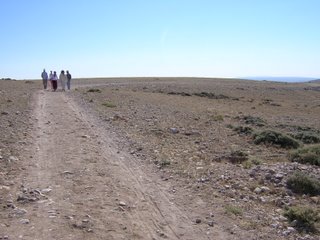
Please no one get the idea that this was an authentic trek. We ate very well—largely thanks to the refrigerated trailer the ward rented. It’s about the size of a U-Haul trailer, but the whole thing is refrigerated. When you walk in, it’s like walking into a huge fridge.
I think these trek reenactments are a good idea. I know they don’t give anyone a completely authentic experience of what the pioneers suffered (and thank goodness), but they do help us to appreciate what we have and what we need to do. I remember hearing a comment from the bishop, in response to all the comments that the pioneers’ lives were so difficult and that none of us could possibly endure everything that they did. He said, paraphrasing an apostle I think, that their lives were set by just a few major decisions. Once they had decided to go west and they were on the trail, what else were they going to do? They couldn’t turn around, they couldn’t rebel without dying; their course for much of the rest of their life was set from that one decision. In contrast, our lives are filled with hundreds of decisions everyday—ones where we could easily get off track if we are not careful. For me in my current situation, this learning-to-make-choices-and-stick-to-them is the most important lesson to be learned from the pioneer experience.
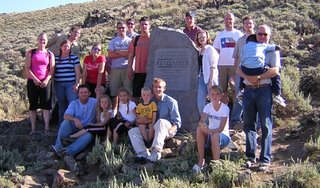
No comments:
Post a Comment